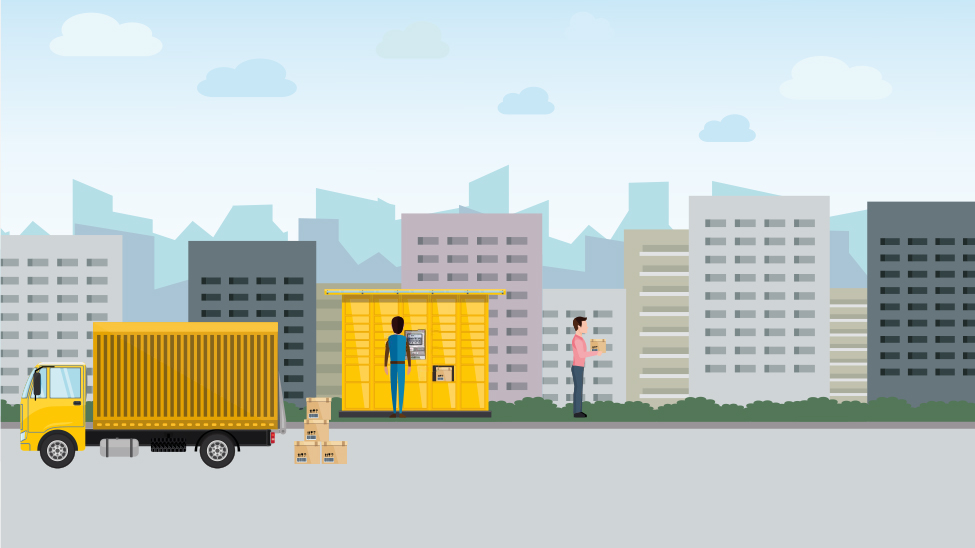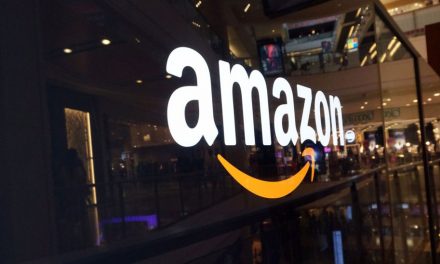
The Tipping Point of Pudo?

This article is an extract from the Spring Edition of MER Magazine published in February 2020. You can read the full article as well as other articles from MER for free by becoming a member of Post & Parcel today.
Tim Robinson, CEO of Doddle says Amazon is dreaming big with its PUDO network and retailers and carriers need to wake up.
“In sociology, a tipping point is a point in time when a group—or a large number of group members – rapidly and dramatically changes its behaviour by widely adopting a previously rare practice.”
A University of Pennsylvania paper from 2018 suggests that “when 25% of people in a group adopt a new social norm, it creates a tipping point where the entire group follows suit. This shows the direct causal effect of the size of a committed minority on its capacity to create social change.”
Right now, pick-up and drop-off (or PUDO, for parcel geeks) adoption is reaching a tipping point. Globally, the huge majority of online deliveries are still made to people’s homes, such that in almost all ‘developed’ e-commerce markets, home delivery for e-commerce is the norm. The only exceptions I’m aware of are the Scandinavian markets and some markets in Eastern Europe.
But if you looked at this as a pure logistics ‘exam question’ – how to get billions of parcels to millions of people as effectively as possible, taking into account all manner of external factors like cost, capacity, congestion, vehicle driver regulations and so on – no-one would come up with a model that delivered each parcel to each individual home.
We’ve got to where we are because in the early days of e-commerce, volumes were low and the natural place for that volume to sit was alongside the mail volume that has been moved by carriers for hundreds of years. Home delivery is the norm because of legacy structures and organisations which developed primarily for letter delivery – it’s not the norm because it’s logical, efficient or economical.
So that invites questions: at what point do we stop adding more vans, and more capacity, to deliver more individual parcels, to more consumers homes, more quickly, to meet the insatiable demand of consumerism? What will be the tipping point that triggers a dramatic change in consumer behaviour away from home delivery?
It’s coming…from the biggest and baddest of them all – Amazon.
Amazon has been doing PUDO for around eight years. The project has been kept relatively quiet, with only minor PR notes and releases from the host partners to mark its continual expansion. That makes establishing the exact scale and timeline slightly difficult, but Amazon’s first official foray into PUDO appears to have been the launch of their locker network in the US and UK in 2011.
Over time the locker network has grown rapidly. Amazon now have an estimated 10,000 lockers in the US, and market reports suggest they’re adding another 10,000 in the next 12 months. In the UK, we’re watching a continual expansion of the already 3,000-strong locker network. Their lockers now exist in five other markets besides the US and UK. And in 2017, they also debuted ‘open-access’ lockers to be sold to apartment buildings, with reports at the time suggesting they were looking to install 40,000 of these units.
While Amazon’s first major moves in PUDO were largely founded on lockers and some partnerships with carrier PUDO networks, that has all changed in the last half a year or so. Amazon Hub / Counter (the brand seems to be used interchangeably) launched in May 2019 as a concession-style PUDO option. This is Amazon’s own PUDO network.
Amazon deploys the Hub app on either an Amazon-provided handheld device, or on some of the host’s existing devices, and that location becomes a pick-up and return point for Amazon parcels. Having only launched in early 2019, the Counter service has already launched in seven global markets: US, UK, Italy, France, Australia, Canada and Spain, with some huge global retailers acting as launch partners. In the US, Amazon has Counter locations in Kohl’s (returns only), GNC, Health Mart, Rite Aid and Stage Stores, representing several thousand of staffed locations. In the UK, in a relatively short time, they’ve added hundreds of Next stores and tied up a partnership with Paypoint, with many more partnerships being rumoured.
Very quietly, Amazon is amassing what will be the biggest PUDO network in the world in the next few years.
This article is an extract from the Spring Edition of MER Magazine published in February 2020. You can read the full article as well as other articles from MER for free by becoming a member of Post & Parcel today.












